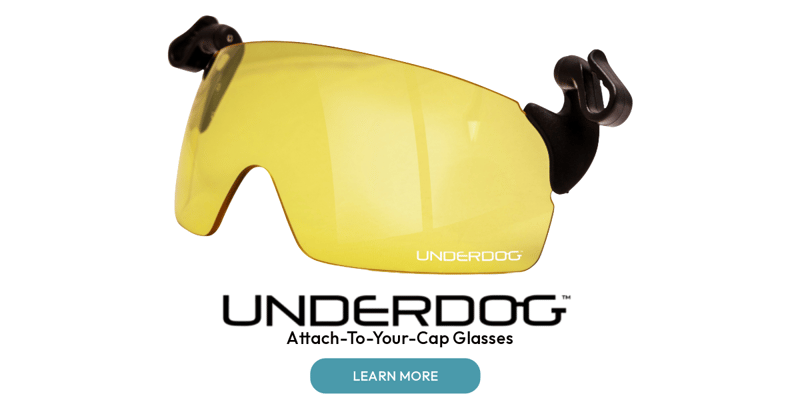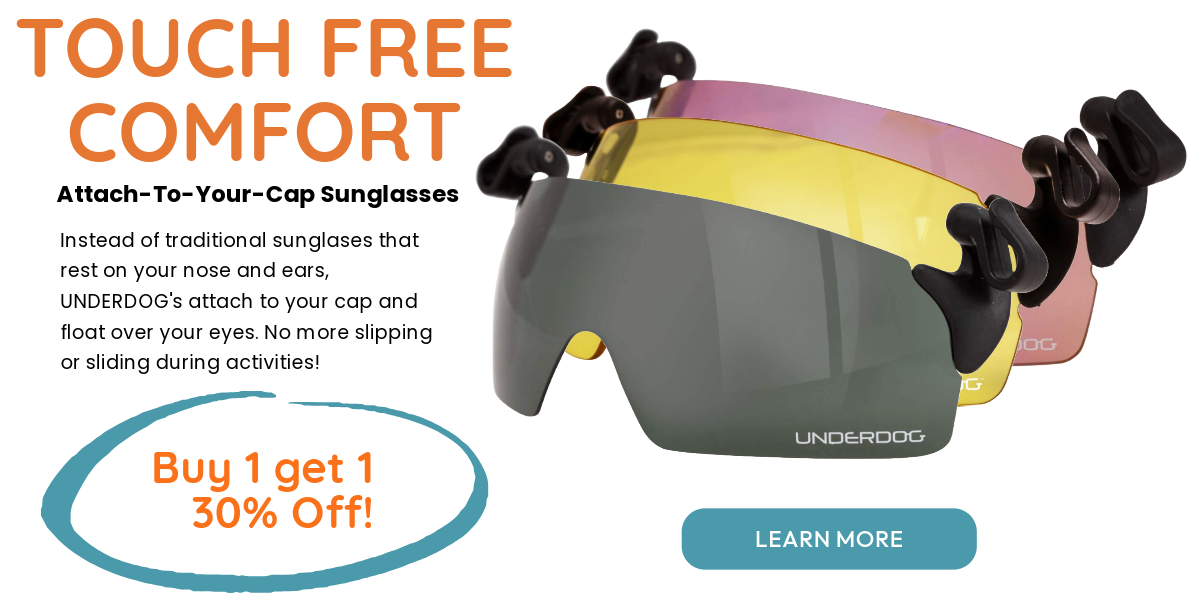Having the right gear is essential for excelling on the golf course, and high-quality sunglasses should not be underestimated. Not only do they protect your eyes from the sun, but the right pair can also improve your visibility, accuracy, and overall performance on the green.
Join us as we dive into the realm of golf sunglasses and address two pressing queries:
1. Are Polarized Sunglasses Good For Golf?
The debate over polarized sunglasses for golf has been ongoing, and opinions vary. However, many golfers swear by the benefits of polarized lenses on the course. Polarized sunglasses are designed to reduce glare, which can be a game-changer when you're out in the bright sunlight trying to spot your ball, read the greens, or gauge distances accurately.
Glare occurs when sunlight reflects off surfaces like water, sand, or even the shiny finish of golf clubs. Polarized lenses work by blocking these horizontal light waves, significantly reducing glare and improving clarity. This can be particularly advantageous on open fairways or courses with water hazards.
Additionally, polarized sunglasses can enhance contrast and depth perception, helping you read the contours of the course more effectively. While some golfers argue that polarization may make it harder to see certain digital screens, such as those on GPS devices or rangefinders, many find the overall benefits outweigh this minor drawback.
In summary, polarized sunglasses can be an excellent choice for golfers, especially those who frequently play in bright, sunny conditions. They provide enhanced visibility, reduce glare, and contribute to an overall more comfortable and enjoyable golfing experience.

2. What Color Sunglasses Are Best For Golf?
The choice of lens color in your golf sunglasses can also impact your performance on the course. Different lens colors offer varying levels of light transmission and contrast, catering to different weather conditions and preferences.
-
Gray Lenses:
- Advantages: Neutral color that doesn't distort colors, ideal for bright and sunny conditions.
- Best For: Clear, sunny days.
-
Brown/Amber Lenses:
-
Yellow/Orange Lenses:
- Advantages: Increases contrast and depth perception, enhances visibility in low-light conditions.
- Best For: Overcast days or early morning/late afternoon rounds.
-
Green Lenses:
- Advantages: Provides good contrast and reduces glare, suitable for a range of light conditions.
- Best For: Versatile choice for different weather conditions.
Ultimately, the best lens color for golf sunglasses depends on personal preference and the specific conditions you often encounter on the course. Some golfers may even opt for interchangeable lenses, allowing them to adapt to changing weather throughout a round.
Conclusion: Investing in a quality pair of sunglasses can significantly improve your golfing experience. Polarized lenses, with their glare-reducing properties, can be a game-changer on sunny days, while the choice of lens color adds a personalized touch to your eyewear. Whether you're a seasoned pro or a weekend warrior, finding the right sunglasses for golf is a small yet impactful step toward enhancing your performance and enjoyment on the green.


 underdogglasses.com
underdogglasses.com
Comments